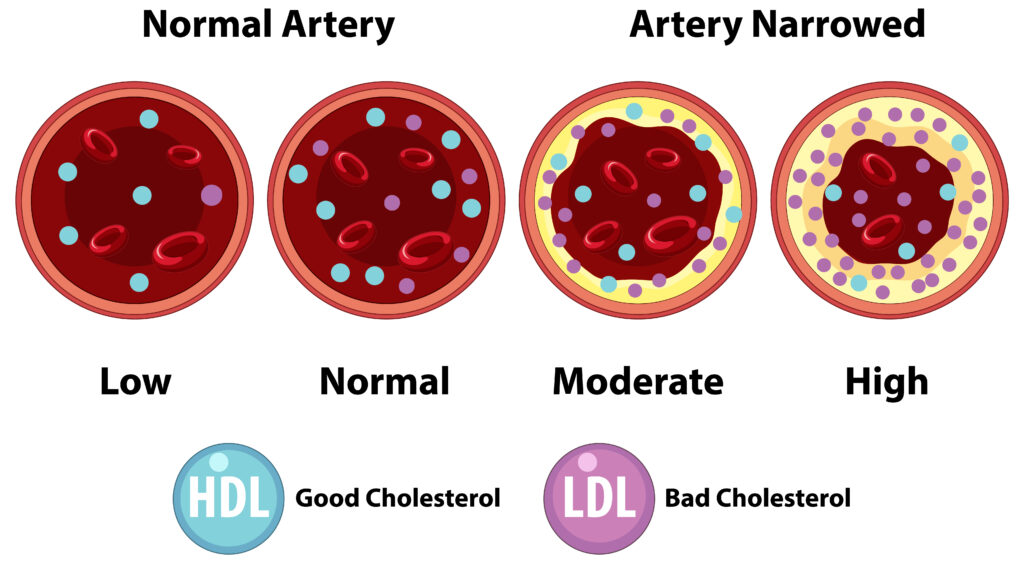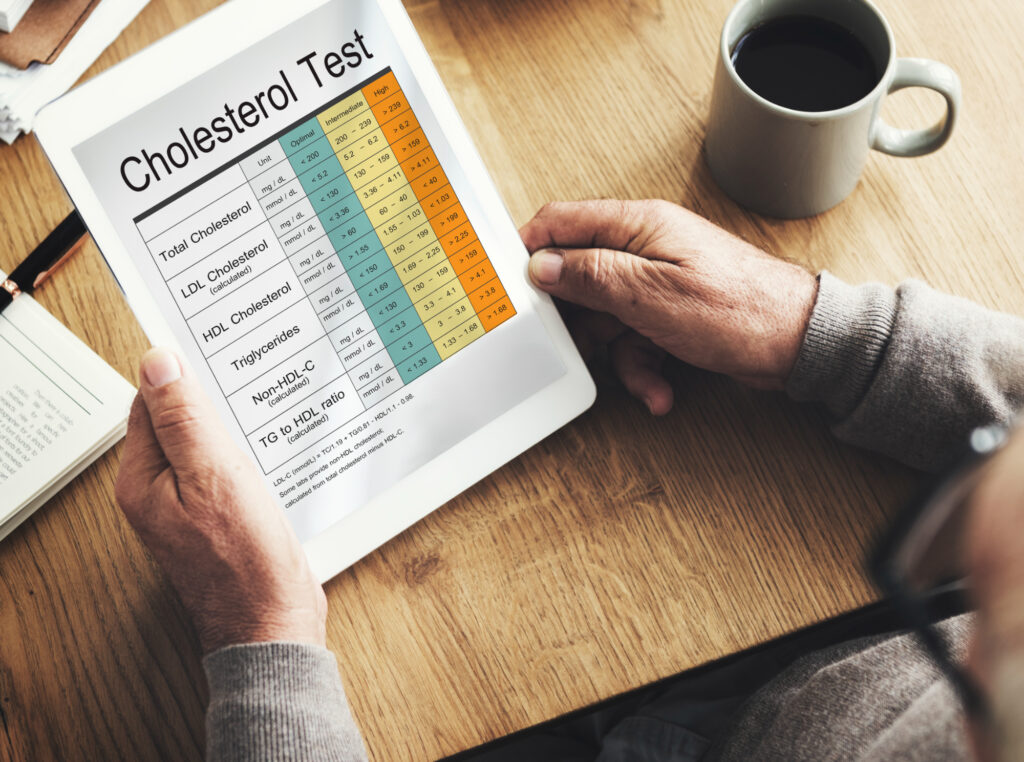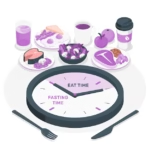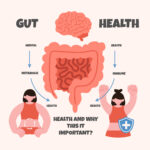Are you struggling with high cholesterol levels? If yes then it’s extremely important for you to look after your beautiful heart’s health. Learn how to reduce blood cholesterol naturally with science-backed tips, lifestyle changes, diet plans, and expert advice.
High blood cholesterol is one of the silent threats to heart health, affecting millions globally. Often without obvious symptoms, unmanaged cholesterol can trigger serious conditions like heart attacks, stroke, and atherosclerosis. But the good news? Cholesterol levels are manageable and even reversible with the right approach. This article discusses how to solve cholesterol issues by understanding the causes, recognizing risk factors, and adopting effective lifestyle and dietary changes backed by medical science.
What is Cholesterol?
Cholesterol is a waxy, fat-like substance present in every cell of your body. It’s essential for hormone production, vitamin D synthesis, and cell membrane integrity. But not all cholesterol is equal.
∆ LDL (Low-Density Lipoprotein) – The “bad” cholesterol that builds up in arteries.
∆ HDL (High-Density Lipoprotein) – The “good” cholesterol that helps remove excess LDL.
∆ Triglycerides – Another form of fat that increases risk when elevated.
An imbalance, especially high LDL or triglycerides and low HDL, can lead to plaque formation in arteries, reducing blood flow and increasing cardiovascular risk.

What Causes High Blood Cholesterol?
– Several factors contribute to elevated cholesterol levels:
• Poor Diet: Excessive saturated fats, trans fats, and processed sugar intake.
• Lack of Physical Activity: Sedentary lifestyle reduces HDL and raises LDL.
• Obesity: Increases triglyceride levels and reduces HDL.
• Smoking and Alcohol: Tobacco lowers HDL; alcohol affects liver function and fat metabolism.
• Genetics (Familial Hypercholesterolemia): A hereditary condition causing persistently high LDL.
• Medical Conditions: Diabetes, hypothyroidism, kidney or liver disease.
Early detection and routine screening (lipid profile tests) help in timely intervention.
Health Risks of Uncontrolled Cholesterol
– Uncontrolled cholesterol levels can silently damage the cardiovascular system over time.
∆ Atherosclerosis: Fat buildup in artery walls, reducing blood flow.
∆ Heart Attack/Stroke: Blocked arteries can trigger fatal events.
∆ Peripheral Artery Disease (PAD): Narrowing of arteries in limbs.
∆ Gallstones: High cholesterol may crystallize into stones in the gallbladder.
∆ Cognitive Decline: Emerging research links cholesterol imbalance with memory and brain function issues.
Managing cholesterol is more than a heart issue, it’s a whole-body concern.
How to Solve Blood Cholesterol Issues Naturally
1. Adopt a Heart-Healthy Diet
• Reduce saturated and trans fats: Cut down on red meat, full-fat dairy, fried foods.
• Increase fiber intake: Oats, legumes, flaxseeds, and whole grains help remove LDL.
• Add omega-3 fatty acids: Fatty fish like salmon, walnuts, and chia seeds are excellent.
• Include antioxidants: Berries, leafy greens, turmeric, and garlic reduce inflammation and support lipid metabolism.
• Limit sugar and refined carbs: Excess sugar converts into triglycerides.
2. Regular Physical Activity
• 150 minutes of moderate aerobic activity/week is ideal.
• Walking, cycling, swimming, and yoga improve HDL and help burn fat.
3. Maintain Healthy Weight
• Losing even 5-10% of body weight can significantly reduce LDL and triglycerides.
4. Quit Smoking and Limit Alcohol
• Quitting smoking improves HDL in just a few weeks.
• Limit alcohol to 1 drink/day (women) and 2 drinks/day (men).
5. Stress Management
• Chronic stress may raise LDL levels. Practice mindfulness, meditation, or breathing exercises.
Medical Treatment Options
Sometimes lifestyle changes aren’t enough, especially in genetically driven cholesterol issues. Doctors may prescribe:
∆ Statins: Most common; they block cholesterol-producing enzymes in the liver.
∆ Bile Acid Sequestrants: Help remove LDL via digestion.
∆ PCSK9 Inhibitors: Injectable drugs for high-risk patients.
∆ Niacin: Increases HDL and reduces LDL/triglycerides.
∆ Fibrates: Target high triglycerides specifically.
Always consult a physician before starting medications. Regular follow-ups and monitoring are critical.
FAQs – What People Often Ask About Cholesterol
1. Can high cholesterol be completely cured?
Not cured, but it can be managed or reversed through lifestyle, diet, and medication.
2. Are cholesterol supplements safe?
Supplements like plant sterols, red yeast rice, or omega-3 oils may help. Always consult a healthcare professional.
3. What’s the ideal cholesterol range?
• Total cholesterol: Below 200 mg/dL
• LDL: Below 100 mg/dL
• HDL: Above 60 mg/dL
• Triglycerides: Below 150 mg/dL
4. Is cholesterol only a problem in older adults?
No. Even young adults and teenagers can develop high cholesterol due to poor diet and lifestyle habits.
5. What’s the difference between dietary and blood cholesterol?
Dietary cholesterol comes from food (like eggs), but most cholesterol in your body is made by the liver. Hence, saturated fat intake impacts blood cholesterol more than dietary cholesterol itself.
Important Insight: What Are the First Warning Signs of Cholesterol Problems?
Many people wonder: “How do I know if I have cholesterol problems before it’s too late?” While cholesterol often shows no direct symptoms, these subtle early warning signs may indicate cholesterol imbalance:
∆ Frequent fatigue or breathlessness
∆ Chest tightness or minor chest pain (angina)
∆ Leg cramps during walking (sign of peripheral artery narrowing)
∆ Numbness in arms or legs
∆ Slow healing wounds
∆ Yellowish deposits around eyes (xanthelasma)
These signs don’t confirm cholesterol issues but can be early markers of poor circulation due to lipid buildup. If you experience these symptoms, especially alongside risk factors like poor diet or family history, get a lipid profile test done immediately. Early action is the best protection against serious cardiac events.
Your Health is in Your Hands!
Cholesterol doesn’t rise overnight, nor does it drop overnight. But the small daily choices you make, from your food to your movement , can make a life-altering difference. With the right awareness, dedication, and a holistic approach, cholesterol can be brought under control, naturally and effectively. Prevention is the best cure, start today, and let your heart thank you tomorrow.


